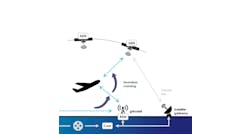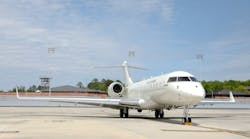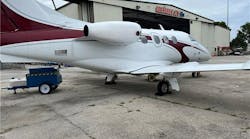The following information was released by the National Business Aviation Association:
Federal efforts to achieve a next generation air traffic control system (NextGen) require a consensus among all aviation segments in order to succeed, National Business Aviation Association (NBAA) President and CEO Ed Bolen said in testimony today before a House subcommittee hearing on the progress of NextGen initiatives.
NextGen modernization holds the promise of a safer, more efficient, more accessible, and more cost-effective national transportation system, Bolen told members of the Aviation Subcommittee for the House Committee on Transportation and Infrastructure, thanking lawmakers for their continued commitment to improving the nations aviation system. The subcommittee held the hearing to review the FAAs Management of the NextGen program.
Bolen was invited to appear before the subcommittee to represent RTCA, an organization charged with providing consensus-based recommendations to the Federal Aviation Administration (FAA) for proceeding on NextGen. Bolen is a former RTCA chair, and today serves as its vice chair.
RTCA should continue to be the forum for receiving FAA tasks, achieving industry consensus, and providing the FAA with consensus-based recommendations regarding NextGen.
Bolen explained that while the general aviation community, including NBAAs 9,000 Member Companies, is beginning to see clear benefits from the transition to a satellite-based system with the establishment of performance based navigation, some concerns need to be addressed.
NextGen raises significant cost realities for system users, Bolen said, which means that program implementation should proceed with a clear cost-benefit case that firmly establishes system requirements, incentivizes early adoption, and provides accountability through the establishment of a comprehensive timeline and budget.
Bolen told lawmakers that the entire cost of equipping for NextGen must be borne by the aircraft owner or operator and cannot be passed along to passengers. Because the costs associated with equipping for NextGen are significant, operators need to be able to plan ahead for necessary expenditures.
In fact, knowing with certainty when new equipment requirements are to go into effect, and when NextGen improvements will be implemented, are important considerations for all aviation segments, Bolen said.
Currently, budgetary uncertainties and the lack of a single comprehensive timeline for achieving important implementation milestones leave users uncertain about what equipment will be needed, ultimately slowing adoption, Bolen told committee members.
The FAA has committed to bringing stakeholders together on the development of a future navigation plan, and components of that plan must include a transition strategy rather than a light switch approach, he continued.
In addition, federal funding to maintain this legacy infrastructure must be established in order to ensure the continued safe operation of the national airspace system, Bolen said.
In a final note of caution to lawmakers, Bolen said that given these needs, the risks to the nations air transportation system posed by sequestration the anticipated, across-the-board funding reduction for all federal agencies, as part of legislation passed last year are serious.
Concerns over the prospect of sequestration have created an added level of uncertainty for system users, Bolen said. Potential cuts in FAA funding overall, and NextGen funding in particular, would have a severe impact on the NextGen implementation process.
Copyright 2012 States News Service




